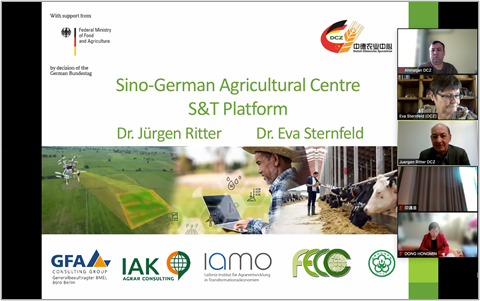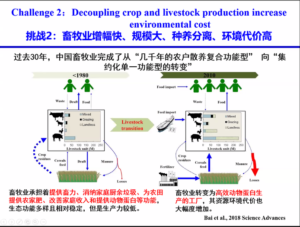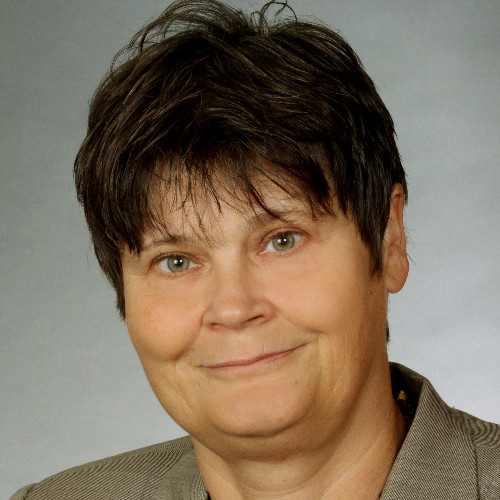 On 22 November afternoon until late the DCZ held the second module of the “Virtual Study Tour on Animal Manure Treatment and Utilization in Germany” with the focus on new research in this field as an online event with more than 175 participants.
On 22 November afternoon until late the DCZ held the second module of the “Virtual Study Tour on Animal Manure Treatment and Utilization in Germany” with the focus on new research in this field as an online event with more than 175 participants.
In Germany as well as in China, the environmentally friendly and climate-friendly utilization of solid manure and manure is a major challenge. In this context, this year the S&T platform in cooperation with the CAAS Institute for Environment and Sustainable Development in Agriculture (IEDA) carried out a virtual study tour on the topic of “sustainable and environmentally friendly utilization of manure from animal husbandry”. The concept for the virtual event was developed by DCZ in cooperation with Prof. Dr. Walter Stinner (DBFZ) and Prof. Dong Hongmin (CAAS). The target group are representatives of Chinese universities, research institutes and government institutions who gain an insight into the state of research, political regulation and practical implementation in Germany.
The first module of the virtual study tour on “Environmental and administrative aspects” was held as a hybrid event on 7 and 8 April 2021. That module was organised in cooperation with IEDA and the Animal Husbandry Breeding Project and attracted 30 participants on site in Beijing and 100 participants online from China and Germany. A compendium compiled by DCZ expert Helmut Döhler on relevant German laws on this topic was made available to the participants in Chinese.
On 22 November, the virtual study tour continued with the online workshop on the second module on “New research in manure and digestate treatment and utilisation”. The workshop was organised by DCZ in cooperation with IEDA and simultaneously translated into English and Chinese. Due to the large network of IEDA and the National Alliance for Innovation in Agricultural Waste, a significant number of participants could be reached. At peak times, 175 devices were connected, while lowest numbers ranged around 100 devices. While the first part of the event focused on the treatment of digestate from biogas plants, the second part focused on fertilizer production from manure and digestate.
 CAAS was able to invite two renowned CAS keynote speakers for the workshop, Prof. Ma Lin (Institute of Genetics and Developmental Biology) and the Academician, Prof. Yin Yulong. Prof. Ma Lin gave an interesting overview of the results of the decoupling of livestock and agricultural production in China and urged for a better understanding of nutrient recycling. The DCZ had engaged a total of 8 German experts, who gave an insight into the state of art of German research. Dr. Jochen Mellmann from the Leibniz Institute of Agricultural Engineering and Bioeconomics (ATB) presented the results of a recently completed research project on drying of digestate. Dr. Ulrich Kreidenweis (also ATB) presented studies by the Institute on the climate-friendly treatment of chicken manure in biogas plants. Sascha Hermus from the Kompetenzzentrum 3 N (Lower Saxony Network for Renewable Resources and Bioeconomy) presented technologies for the use of manure in biogas plants. Helmut Döhler (Döhler Agrar) discussed in his presentation the challenges arising from the use of liquid manure leading to high nitrate pollution in regions of Germany with intensive animal husbandry, in addition to major logistical challenges and high transport costs. In the second part of his presentation, Döhler discussed future strategies and presented a stable system for pig farming developed by his company, in which both animal welfare and climate protection are taken into account. Johannes Koslowski from the Competence Network Water Berlin (KWB) presented a pilot plant that filters out ammonium from digestate. The last three German contributions by Prof. Dr. Walter Stinner (Deutsches Biomasse Forschungszentrum DBFZ), Johanna Wiechen (also DBFZ and TU Berlin) and Dr. Joachim Clemens (Soepenberg Gmbh) discussed the possibilities for struvite extraction from manure and digestate and the potential possibilities of this technology in fertilizer production. Struvite are water-containing phosphate minerals extracted from wastewater and manure. According to Dr. Clemens, it remains to be seen whether this technology will prevail in China, as the country is one of the few countries in the world that has its own phosphate rocks. In field trials conducted by Dr. Clemens with China Agriculture University and Humboldt University, very promising fertilizing results were achieved with struvite. In the final lecture, Academician Prof. Yin Yulong presented strategies for achieving climate neutrality through various manure treatment technologies which can also be adapted to regional differences in China.
CAAS was able to invite two renowned CAS keynote speakers for the workshop, Prof. Ma Lin (Institute of Genetics and Developmental Biology) and the Academician, Prof. Yin Yulong. Prof. Ma Lin gave an interesting overview of the results of the decoupling of livestock and agricultural production in China and urged for a better understanding of nutrient recycling. The DCZ had engaged a total of 8 German experts, who gave an insight into the state of art of German research. Dr. Jochen Mellmann from the Leibniz Institute of Agricultural Engineering and Bioeconomics (ATB) presented the results of a recently completed research project on drying of digestate. Dr. Ulrich Kreidenweis (also ATB) presented studies by the Institute on the climate-friendly treatment of chicken manure in biogas plants. Sascha Hermus from the Kompetenzzentrum 3 N (Lower Saxony Network for Renewable Resources and Bioeconomy) presented technologies for the use of manure in biogas plants. Helmut Döhler (Döhler Agrar) discussed in his presentation the challenges arising from the use of liquid manure leading to high nitrate pollution in regions of Germany with intensive animal husbandry, in addition to major logistical challenges and high transport costs. In the second part of his presentation, Döhler discussed future strategies and presented a stable system for pig farming developed by his company, in which both animal welfare and climate protection are taken into account. Johannes Koslowski from the Competence Network Water Berlin (KWB) presented a pilot plant that filters out ammonium from digestate. The last three German contributions by Prof. Dr. Walter Stinner (Deutsches Biomasse Forschungszentrum DBFZ), Johanna Wiechen (also DBFZ and TU Berlin) and Dr. Joachim Clemens (Soepenberg Gmbh) discussed the possibilities for struvite extraction from manure and digestate and the potential possibilities of this technology in fertilizer production. Struvite are water-containing phosphate minerals extracted from wastewater and manure. According to Dr. Clemens, it remains to be seen whether this technology will prevail in China, as the country is one of the few countries in the world that has its own phosphate rocks. In field trials conducted by Dr. Clemens with China Agriculture University and Humboldt University, very promising fertilizing results were achieved with struvite. In the final lecture, Academician Prof. Yin Yulong presented strategies for achieving climate neutrality through various manure treatment technologies which can also be adapted to regional differences in China.
Compiled German regulations on animal manure utilisation in Chinese language available here.




